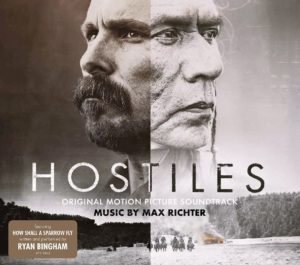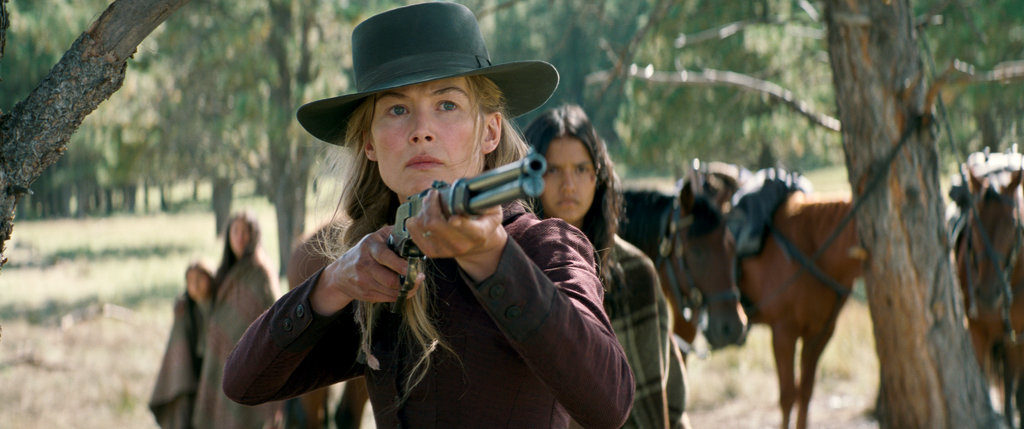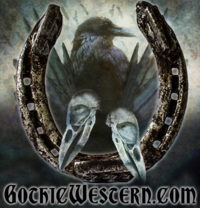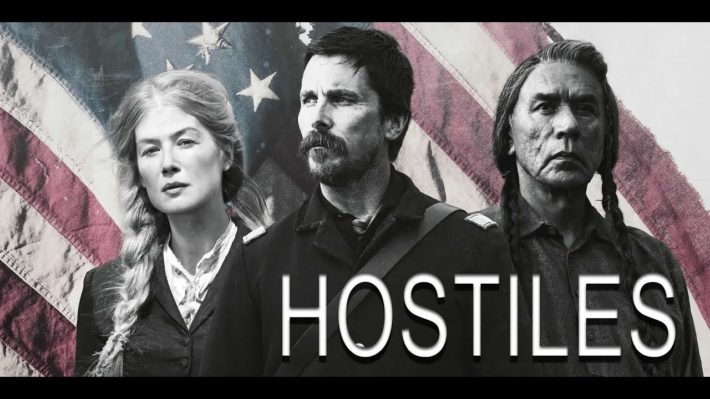“Hostiles” is a 2017 American period western film written and directed by Scott Cooper, based on an original story by Donald E. Stewart. It stars Christian Bale, Rosamund Pike, Wes Studi, Ben Foster, Stephen Lang, Jesse Plemons, Rory Cochrane, Adam Beach, and Q’orianka Kilcher. In 1892, a legendary Army captain reluctantly agrees to escort a Cheyenne chief and his family through dangerous territory. Max Richter wrote the dark western soundtrack.
 To my joy, the Western is making a big comeback and 2017 was a bonanza of Western movies and TV shows; I grew up on Westerns and I still feel nothing compares to that atmosphere. Christian Bale returns to the genre in a role he sort of played before in the excellent remake of “3:10 to Yuma”, a movie with a score to match. And speaking of scores, Max Richter has become one of my favourite composers these last couple of years, ever since the emotional spark from “The leftovers” moved me like few things did before. It’s his first western and also his longest score yet, some 73 minutes and since I was always complaining about wanting more music from him, this is my chance.
To my joy, the Western is making a big comeback and 2017 was a bonanza of Western movies and TV shows; I grew up on Westerns and I still feel nothing compares to that atmosphere. Christian Bale returns to the genre in a role he sort of played before in the excellent remake of “3:10 to Yuma”, a movie with a score to match. And speaking of scores, Max Richter has become one of my favourite composers these last couple of years, ever since the emotional spark from “The leftovers” moved me like few things did before. It’s his first western and also his longest score yet, some 73 minutes and since I was always complaining about wanting more music from him, this is my chance.
Max Richter starts bold and fearless with a seven minute opening cue “The first scalp”. The sweet Americana harmonica sound that plays gently for a minute or so is as deceptive as the scorching sun that creates chimeras; the music takes a turn for the dark and the Americana sound is replaced by a fast paced and menacing rhythm that sounds like percussion but is played with different instruments. It’s a brilliant and uncomfortable way to evoke the Indians coming and the ensuing fight. There’s no trace of the melodic touch this classical composer almost always gives his music. Every now and then a sparse cello motif breaks the wall and brings some warmth to a harsh environment. “The first scalp” is a poignant and powerful start to this score.
 The Max Richter sound I’ve grown addicted to surfaces in “A woman alone”, a poignant solo piano piece that has become his trademark. It’s an exception, alongside “The lord’s rough way”, as this score is all about the cold and harsh atmosphere; at atmosphere like this can make for an uncomfortable standalone listen for some but me I’m all into minimalistic music and this combination of sparse instrumental motifs and distant percussion that makes me think of the American Indian element in the story works for me. A long score works if it burns slowly like this. My favourite western scores in the past few years have been written by Nick Cave and Warren Ellis and Max Richter shows me here a different way to go. I like how every now and then a warm and melodic motif appears in the middle or at the end of a cue like catharsis for the suffering before. Those short cello bursts and the moody piano motifs, slow burning as well, are my favourite parts of this score. “Cradle to the grave” is a cue that shows exactly how well Max Richter can write minimalistic film music with emotional impact.
The Max Richter sound I’ve grown addicted to surfaces in “A woman alone”, a poignant solo piano piece that has become his trademark. It’s an exception, alongside “The lord’s rough way”, as this score is all about the cold and harsh atmosphere; at atmosphere like this can make for an uncomfortable standalone listen for some but me I’m all into minimalistic music and this combination of sparse instrumental motifs and distant percussion that makes me think of the American Indian element in the story works for me. A long score works if it burns slowly like this. My favourite western scores in the past few years have been written by Nick Cave and Warren Ellis and Max Richter shows me here a different way to go. I like how every now and then a warm and melodic motif appears in the middle or at the end of a cue like catharsis for the suffering before. Those short cello bursts and the moody piano motifs, slow burning as well, are my favourite parts of this score. “Cradle to the grave” is a cue that shows exactly how well Max Richter can write minimalistic film music with emotional impact.
“Hostiles” is a very quiet and slow burning score; if you know Westerns you know that quite often the movies develop the same way with a lot of lonely riding and vast, empty landscapes to go through. As much as I am enjoying this score as a standalone listen I am sure I’ll like it even more in context. For me this minimalistic, ambient and every now and then emotionally rewarding (in cues like “Where we belong”) works. “Hostiles” is dense and rich and Max Richter knows how to tug at my emotional chords so while this is different from what I usually hear from him, it’s a score that leaves a mark and cements Richter’s place in my list of favourite composers.
By Mihnea Manduteanu (originally published on soundtrackdreams.com)



